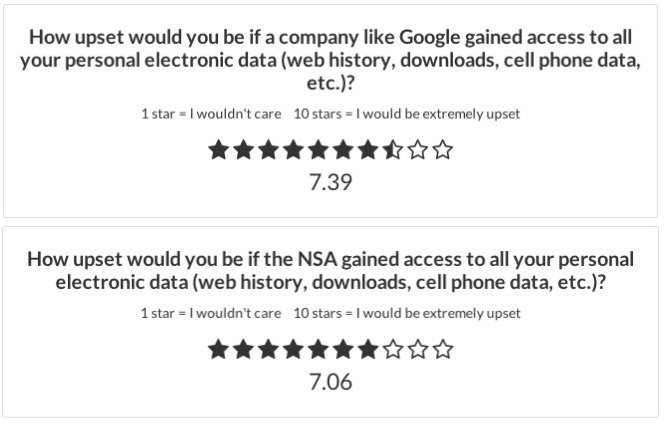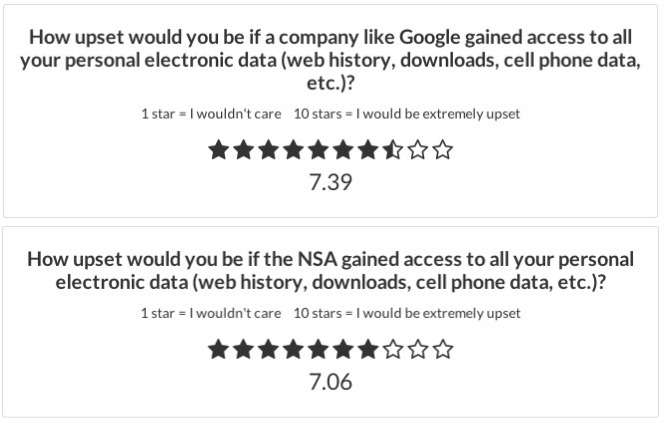Survey: People trust the NSA over Google with their private information


A free daily email with the biggest news stories of the day – and the best features from TheWeek.com
You are now subscribed
Your newsletter sign-up was successful
Online survey firm Survata polled 2,566 people about their privacy, asking how upset they would be, on a 10-point scale, if various interests "gained access to all your personal electronic data." The higher the number, the greater the level of upset. This result surprised them:

For reference, respondents gave a 6.85 rating to their boss, a 5.93 to their parents, and a 4.55 rating to their spouse or significant other. The Google vs. NSA result was more surprising because the poll sample skewed pretty young — more than half were between 13 and 24. Survata co-founder Chris Kelly hazarded a guess as to why the NSA came out on top, when asked by CNET's Chris Matyszczyk:
We did not ask respondents for the reasons or motivations behind their answers; so we can only conjecture based on our previous research. One guess is that respondents assume the NSA is only looking for "guilty" persons when scouring personal data, whereas a company like Google would use personal data to serve ads or improve their own products. [Kelly, via CNET]
The results actually aren't out of line with other polls showing comfort with NSA data-harvesting, Matyszczyk notes. At the same time, people actively choose to use Google and Facebook. So, hmmm.
The Week
Escape your echo chamber. Get the facts behind the news, plus analysis from multiple perspectives.

Sign up for The Week's Free Newsletters
From our morning news briefing to a weekly Good News Newsletter, get the best of The Week delivered directly to your inbox.
From our morning news briefing to a weekly Good News Newsletter, get the best of The Week delivered directly to your inbox.
A free daily email with the biggest news stories of the day – and the best features from TheWeek.com
Peter has worked as a news and culture writer and editor at The Week since the site's launch in 2008. He covers politics, world affairs, religion and cultural currents. His journalism career began as a copy editor at a financial newswire and has included editorial positions at The New York Times Magazine, Facts on File, and Oregon State University.
